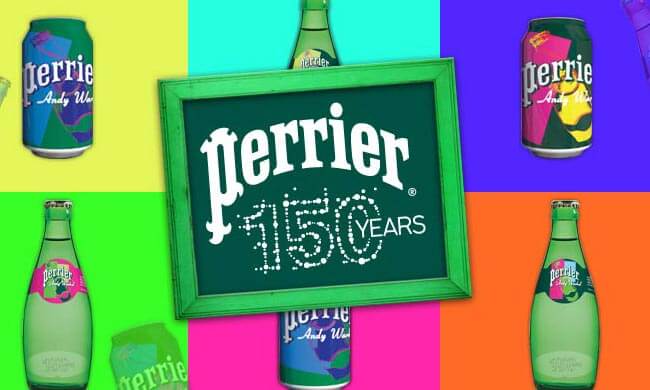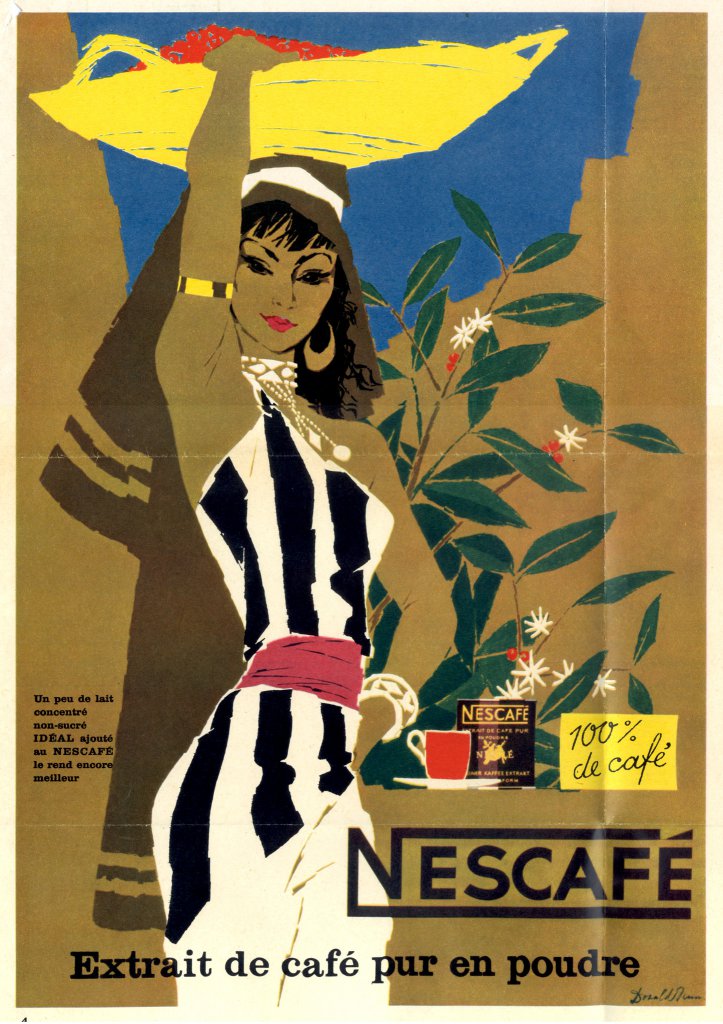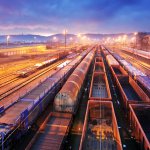Nestlé – why the world’s biggest food company uses blockchain

Popular belief has it that the clinking of glasses before a drink came from medieval times. Wine was often spiked with poison and hidden by the sediment. If the host wanted to prove that the wine wasn’t poisoned, they would pour part of the guest’s wine into their own glass and drink it first. If the guest trusted their host, they would simply clink glasses when the host offered their own for a sample – a sign of trust, honesty and good health.
The story is symbolic of the continued importance of trust in our enjoyment of the food and drink we consume today, and that what ends up on our table is indeed what we’ve been led to believe it is.
The food we eat today for the most part comes from a complex global supply chain, comprising production, logistics, processing, packaging, storage, distribution, and yet more logistics, before it falls into our basket. While we enjoy more choice and variety than ever as consumers today, we have never been further from the original source of our food supply.
With this complexity comes risk. Recalls and restaurant closures have highlighted the risks that our food, as it changes hands hundreds of times, are exposed to along this chain – whether it’s contamination, spoiling, or our food being replaced by something else entirely – forgive us for reminding you of the horse meat scandal of 2013.
At the same time, consumers are becoming conscious of the environmental and societal impact their food has in its original locale, and want assurances that producers are honoring ethical commitments. In short, producers are being held to higher standards of transparency than ever before.

A poster advert from Switzerland in the 1950s. Source Nestlé
Established over 150 years ago, Nestlé is the biggest food manufacturer in the world. In 2019, the Swiss headquartered giant sold more than US$80 billion worth of food produce across 187 countries. Nestlé has 403 factories around the world, out of which come some of the world’s most recognisable brands, including household names like Nescafé, global icons like Perrier and local favourites like NaturNes and Milo.
Essentially a pillar of the world’s supermarket supply chain, then, this market-leader is held to yet higher standards than most.
Nestlé embraces blockchain
The Swiss food giant is investing significant resources into innovations that make tracking a product’s journey as simple, easy and standardized as flipping a bag of chips and checking its ingredients. Blockchain is one such technology that’s helping it do so.
Over the course of several years to date, Nestlé has made considerable progress in unearthing blockchain’s potential. The group is a founding member of the IBM Food Trust – a SaaS solution that provides users with immediate access to actionable food supply chain data. That includes the complete history and current location of any individual food item, as well as accompanying information such as certifications, test data and temperature data, which can all be readily available in seconds once uploaded onto the blockchain.
Last year, Nestlé ‘broke ground’ in supply chain transparency through a collaboration with blockchain platform OpenSC – becoming the first major food and beverage company to announce that it will pilot open blockchain technology.
Benjamin Dubois is tasked with managing the digital transformation of Nestlé’s supply chain, and has overseen introduction of blockchain technology at the firm over the last several years with the aim of enhancing customer trust – the goal is to enable them to make a clear judgement at the point of purchase. Reflecting on his employer’s current progress, Dubois described the firm’s exploration into blockchain as somewhat of a “journey” itself.
“We have looked at other legacy technologies to do the same thing […] the problem we had is that there is no technology that was flexible enough, that had the level of trust and immutability.”
Outside of the food sector, blockchain is fast proving its value in the supply chain tracking. Today, nearly all the world’s leading companies have advanced digital infrastructure, such as computerized enterprise resource planning (ERP) and supply chain management software. But while products are tracked from their earliest origins – from connected manufacturing equipment to digital shipping notices and RFID scanning – there are ‘analog gaps’ between systems that even these advanced solutions can’t keep watch over.
As a result, most companies have only limited visibility and insight into where all their products are at any given moment. With blockchain, companies can own a real-time and immutable digital ledger of transactions and movements for all participants in their supply chain network. The structure of the technology ensures that each player along the food value chain would generate and securely share data points, with labels that clarify ownership, creating an accountable and traceable system that no other technology can match.
“Blockchain is a decentralized solution,” said Dubois. “It’s about creating this independent and auditable flow of data along our value chain – every actor has the responsibility to upload the data […] we are responsible for our parts; we can convey that to the consumer and they can be assured of the genuineness of what they see.
“The consumer knows that the data uploaded by the farmer has not been subsequently changed by someone else,” Dubois continued. “We can consolidate the data we have in silos, and show it to the consumer so that they can make their own judgement.”
Blockchain in tracing sustainability
While many companies, including US retail and grocery giant Walmart, are turning to blockchain’s power in traceability to tackle the very real and very dangerous issue of food contamination, blockchain technology could have a transformative impact on sustainability and the environmental impact of our global food supply, especially when combined with certifications and data from independent environmental groups.
Palm oil, a common ingredient in food today, is responsible for huge amounts of deforestation across the planet. While 17% of producers claim to be sustainable, the palm oil supply chain remains opaque, making it difficult for regulators to verify claims of sustainability, and for consumers to trust they are buying ethical products. Just one way blockchain could help is by securely storing signed satellite imagery as part of the individual product’s data, which could ensure ‘deforestation free’ products are honoring their commitments. In concert with other technologies such as machine learning, image recognition algorithms could trigger an alert system if a pattern of deforestation is identified.

Palm oil plantations are a major driver of the world’s deforestation. Source: Shutterstock
In efforts to crackdown on illegal and unsustainable fishing practices, meanwhile, World Wildlife Fund (WWF), and tech companies ConsenSys and TraSeable have deployed a blockchain partnership in the Pacific Islands tuna industry that will use blockchain technology to track the journey of tuna from “bait to plate”.
This April, Nestlé used blockchain to track the origin of its luxury coffee brand Zoégas, a blend made from arabica coffee beans from Brazil, Rwanda and Colombia and roasted in Sweden. By scanning a QR code, buyers can access blockchain-recorded data including information about the coffee’s separate origins, its farmers, time of harvest, transaction certificate for the specific shipments, as well as the roasting period. The coffee, and the process behind its production, is fully-certified by the Rainforest Alliance.
There is now an incredibly complex “conveyor belt of data” available from our food supply chains, said Dubois – all of which when woven together provides rich insight into the journey of our food. While Nestlé, and other members of the food industry, are at the beginning of their journey, blockchain is enabling the consolidation of this data, providing for the first time the potential for a single and accurate top down view of the supply chain.
Given Nestlé’s seemingly endless product lines across the world, Dubois does not expect to be able to make traceability as advanced as the current trial with Zoégas for every single commodity. But he is adamant that blockchain, for now, is a crucial component in continuing to evolve the company’s mission, and it can serve as an example in the process.
“The food marketplace is evolving and we have this scale of operation, providing this healthy food throughout the world – but it’s about showing consumers where we’re sourcing it and what we put in place to ensure that you know that food is good and healthy,” Dubois said.
“When you look at the purpose of Nestlé – to unlock the power of food and enhance the quality of life for everyone – I think technology and data and transparency is critical to that, so that consumers can trust what they buy.”
We can raise a glass to that.









